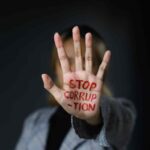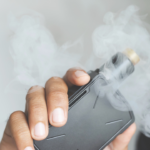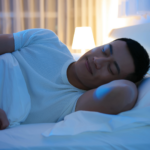- Even if you’ve had COVID before, you should still get vaccinated, because scientists don’t yet know for how long your antibodies will protect you from getting sick again.
- The health department says you should, however, wait for 35 days after a positive COVID result or 30 days after your last symptoms, before getting vaccinated.
- Getting vaccinated while you’re sick with COVID will lead to your immune system being overstimulated, because it will respond to both your infection and the vaccine.
Should you still get vaccinated against COVID if you’ve already had the disease and your body has built up immunity against it? The short answer is yes, because scientists don’t yet know for how long you are protected from getting sick again. So although you may have short-term antibody protection after you’ve recovered from COVID, researchers are still unsure about how long that protection will last.
South Africa’s ministerial advisory committee on COVID-19 vaccines also points out that some people with weaker immune responses may become re-infected with SARS-CoV-2, the virus which causes COVID-19, especially if their first infection happened during South Africa’s first wave, when the wild-type or original form of the virus was dominant. The antibodies that our bodies produce in response to the original SARS-CoV-2 variant do not necessarily protect us against infection by later variants such as the Beta (this variant was dominant during South Africa’s second wave) and Delta (the variant that is currently dominant in the country) variants.
[VIDEO] Delta for dummies: Explaining SA’s latest COVID variant
In fact, even if you have been vaccinated, you can still get infected with SARS-CoV-2 — but the big difference between vaccinated and unvaccinated people is that those who got a jab are significantly less likely to fall seriously ill with COVID or die from it.
But, some scientists ask, should you get both jabs of a two-dose vaccine if you’ve already had COVID or can your body’s natural immune response replace one of those jabs?
Researchers are still trying to figure this out. Some studies show that people with previous exposure to COVID produce potent immune responses after single shots and gain little more benefit from a second jab.
As a result, countries such as Italy, Germany and France now recommend only one jab of a two-dose vaccine for previously infected people who have healthy immune systems. In that way, they manage to stretch vaccine supplies.
But the journal Nature reports that “scientists still don’t know whether one-jab programmes … could leave some individuals with suboptimal protection. Nor is it clear that such programmes would be effective for all types of vaccine.”
Nature also cautions that some people, such as those who don’t develop COVID symptoms, often “mount a relatively weak immune response”, and they may benefit from both doses of a two-shot vaccine.
South Africa’s health department recommends that people with previous exposure to COVID still get fully vaccinated — in other words, have one shot of the Johnson & Johnson vaccine or two jabs of the Pfizer vaccine (the two vaccines we currently use in the country). Countries such as the United States have similar guidelines.
But can you get vaccinated against COVID while you have COVID, or should you first wait until you have recovered?
The health department says you should wait for 35 days after your positive test result or 30 days after your last symptoms before getting vaccinated against COVID, regardless of whether you had COVID with or without symptoms. This is also the case if you contract SARS-CoV-2 between the first and second shot of a Pfizer jab, even if it means that you wait for longer than the recommended 42 days before getting your second jab.
But why should you wait and what would happen if you do get vaccinated during that period? We asked the director of the Centre for the Aids Programme of Research in South Africa, and member of the Africa Task Force for Novel Coronavirus, Salim Abdool Karim.
1. Why should you not get vaccinated against COVID when you have COVID?
Salim Abdool Karim: COVID-19 has four stages. Firstly, there is the initial infection, which is part of the incubation period. Secondly, you have the clinical symptoms stage, during which you will test positive [for SARS-CoV-2, the virus which causes COVID-19]. You then have the recovery stage during which your antibody levels rise. And in some individuals, we have a fourth phase, which is long COVID.
During the acute phases of COVID — these are the first two phases — the SARS-CoV-2 virus is already replicating, so it’s making copies of itself and stimulating your body’s immune response. You’d want to avoid getting a COVID vaccine during that time, because if you do, you’re giving the body two sets of signals. You’re giving it the virus that’s replicating as an immune signal to respond to and you’re also giving it the vaccine.
We therefore strongly recommend that people who are testing positive for COVID, and who are within a period after their first diagnosis, wait for about 30 days before getting vaccinated after their diagnosis. But as soon as possible thereafter, please go and get vaccinated because the vaccine is safe thereafter.
2. What is the ideal period to wait before you get vaccinated? The health department says 35 days after a positive test result or 30 days after your last COVID symptoms.
Salim Abdool Karim: There is no hard and fast rule. Most countries have gone with 30 days because Public Health England was the first government agency trying to find an answer to that. And when they started vaccinating people 30 days and over after the acute infection, the patients did quite well. So we now know from their empirical observation that it’s quite safe to do that.
There is no particular adverse reaction that’s going to occur earlier, it’s just that we don’t want to confuse the immune system. And during the third phase of COVID-19, the immune phase, where you can get quite ill, we don’t want to overstimulate the immune system. So we are trying to avoid that by giving the vaccine at least 30 days later.
3. How long should you wait to get vaccinated if you have long COVID?
Salim Abdool Karim: There is no evidence to determine the appropriate answer to the question on long COVID. In the absence of evidence to guide vaccination in people with long COVID, I think it is probably best to stick with the current general health department guidance of 35 days after the positive COVID test, until studies provide data to guide an evidence-based guideline for individuals with long COVID.
[Updated 11:02 3 August 2021: This article was updated to reflect the addition of one more question and answer on what to do with vaccination in the case of long COVID. The question was added after a Bhekisisa follower on Twitter asked it and we then got Salim Abdool Karim to respond to the question in writing.]









